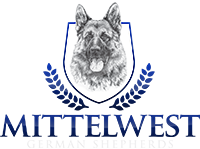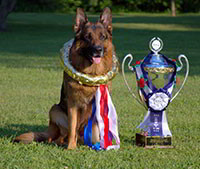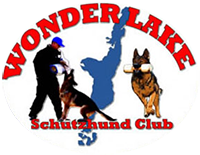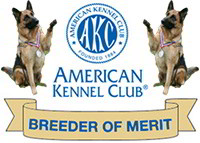Welcoming a German Shepherd puppy into your home is an exciting milestone. These dogs are renowned for their intelligence, loyalty, and versatility, making them cherished companions. However, a smooth transition is vital to helping your puppy adapt to their new surroundings.
Your puppy can thrive in their new home with careful preparation and the right guidance. This guide will provide actionable advice, covering everything from home preparation to long-term adaptation strategies. By the end, you’ll have the tools to ensure your puppy’s comfort, confidence, and happiness.
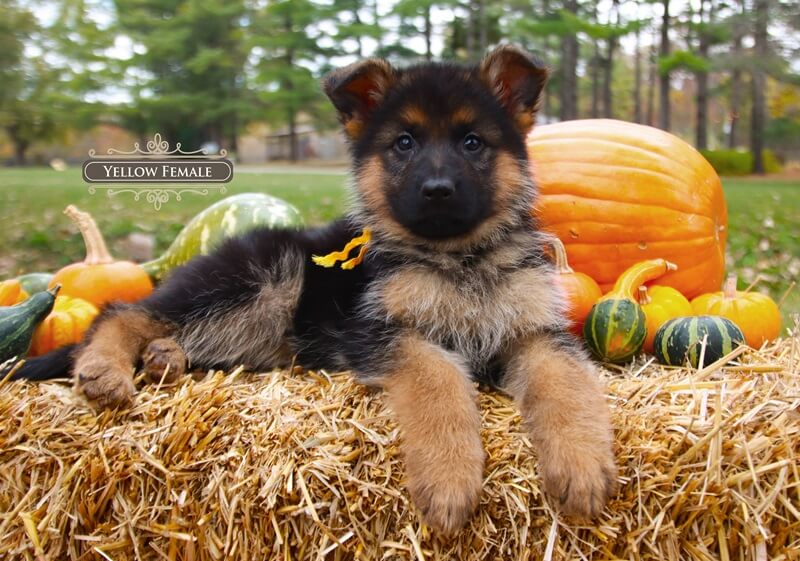
Understanding German Shepherd Temperament
German Shepherds are among the most adaptable and intelligent dog breeds, celebrated for their loyal and protective nature. These traits make them exceptional family pets and working dogs. Yet, understanding their temperament is essential to providing them with the right environment.
These dogs are eager to learn and thrive when mentally stimulated. Like a brilliant student needing challenging lessons, they crave activities that keep their minds engaged. Their high intelligence can lead to boredom and unwanted behaviors without proper engagement.
Early socialization and positive interactions are pivotal for shaping their demeanor. Experiences during their first weeks and months lay the groundwork for their behavior. Their innate qualities—loyalty, courage, and adaptability—flourish when nurtured properly.
You’ll be better equipped to meet their needs by understanding their temperament. Let’s move on to preparing your home to welcome this extraordinary companion.
Preparing Your Home For A German Shepherd Puppy
Preparing your home for a German Shepherd puppy is an exciting task. A well-prepared environment ensures a smooth transition for your furry friend. It’s like setting the stage for a grand performance—everything needs to be just right.
Puppy-Proofing Living Spaces
Start by removing hazards such as loose wires, small objects, and harmful plants. Next, you must secure cabinets containing cleaning products or food, as these can pose risks. Think of your home as a playground—safe for exploration but free from dangers.
Gathering Essential Supplies
Equip your home with high-quality essentials. Provide a cozy bed, a crate for training, and durable chew toys. Easy-to-clean food and water bowls, puppy-safe shampoo, and training treats should also be on hand. These items lay the foundation for your puppy’s comfort.
Establishing Household Rules
Consistency is critical when introducing a puppy to your household. Decide where they will sleep, eat, and play. Establish rules for family members to follow, creating a united approach to training and care.
With a prepared home, you can make your puppy’s first days memorable and stress-free. Let’s now focus on how to introduce them to their new environment.
The First Days: Introducing Your Puppy To Their New Home
The first days in a new home are a defining experience for a German Shepherd puppy. These initial moments shape their perception of their environment, family, and routines. Think of it as the foundation of a building—strong beginnings lead to lasting stability.
Creating A Welcoming Environment
When your puppy arrives, keep the environment calm and inviting. Loud noises or too many people can be overwhelming for a young pup. Allow them to explore their new surroundings at their own pace, starting with a designated safe space. This space should include a cozy bed, a crate, and access to water and toys.
As they grow more comfortable, they expand their access to other parts of the house. This phased approach prevents them from feeling overwhelmed while giving you control over their environment. Remember, patience is key; each puppy adjusts at their own speed.
Meeting Family Members & Pets
Introduce your puppy to family members and other pets one at a time. Supervised interactions are essential to ensure these introductions are positive. Encourage calm behavior by rewarding your puppy with treats and praise when they approach with curiosity or confidence.
Pay close attention to their body language. Wagging tails, sniffing, or gentle play signals comfort, while hiding or growling may indicate stress. Allow your puppy to retreat to their safe space if they need a break.
Establishing Routines
Consistency helps your puppy feel secure. Establish a daily schedule for meals, potty breaks, playtime, and sleep. Puppies thrive when they know what to expect, and routines speed up house training while reducing anxiety.
The first days should focus on comfort, safety, and trust-building. With these early steps completed, your puppy will be ready to embrace socialization and new experiences, which we’ll discuss next.
Socialization: Building Confidence In New Environments
Socialization is the backbone of a well-adjusted German Shepherd. Exposing your puppy to new people, places, and experiences early ensures they grow into confident and adaptable adults. Think of it as giving your puppy a treasure map—every new encounter adds to their sense of security and trust.
Why Socialization Matters
German Shepherds are naturally alert and curious, but they may develop fear or aggression without socialization. Early socialization teaches them to navigate the world calmly and confidently. Positive exposure to different environments creates a foundation of trust, reducing stress in new situations throughout their life.
Exposure To New Stimuli
Introduce your puppy to various stimuli in a controlled manner. Let them experience the sights and sounds of parks, busy streets, and household appliances like vacuums. Gradual exposure, paired with treats and praise, turns potentially intimidating experiences into opportunities for growth.
During these encounters, keep the experiences short and positive. For example, let them observe a loud noise from a distance, slowly moving closer over time. Always monitor their body language to ensure they are curious and not overwhelmed.
Organized Socialization Opportunities
Puppy classes and playgroups offer valuable chances for your puppy to meet other dogs in a safe environment. These settings allow them to learn appropriate social cues and practice interacting with peers. Visits to pet-friendly stores or outdoor cafés provide similar opportunities to engage with new people and settings.
Socialization is an ongoing process that should continue through your puppy’s formative months and beyond. Each positive experience builds their confidence and strengthens your bond. With their social skills blossoming, the next step is integrating training to further enhance their adaptability.
Training Techniques To Aid Adaptation
Training is the key to helping your German Shepherd puppy thrive in their new environment. It establishes structure, enhances communication, and strengthens your bond. Think of training as giving your puppy a roadmap to confidently navigate their new world.
Positive Reinforcement Methods
Positive reinforcement is the most effective way to teach your puppy good behaviors. Reward desired actions with treats, praise, or playtime to encourage repetition. For example, when your puppy sits on command, offer a small treat immediately to link the action with a positive outcome.
Avoid punishment-based training techniques, as these can create fear and hinder trust. Instead, redirect unwanted behaviors like chewing with an acceptable alternative, such as a toy. This approach fosters a cooperative, trusting relationship.
Basic Obedience Commands
Start with simple commands like sit, stay, and come. These foundational skills create a communication system between you and your puppy. Leash training is equally important, teaching your dog to walk calmly and making outdoor adventures enjoyable for both of you.
Practice commands daily in short sessions to keep your puppy focused and engaged. Use a consistent tone and hand signals to reinforce learning. Gradually increase distractions to ensure your puppy responds in various environments.
Tackling Common Issues
Some challenges, such as chewing or separation anxiety, are common in German Shepherds. Redirect chewing with engaging toys or frozen treats. For separation anxiety, leave your puppy alone for short intervals, gradually increasing the time to build their confidence.
Training isn’t just about correcting behavior—it’s about guiding your puppy toward becoming a well-mannered companion. As their training progresses, so will their adaptability and trust. With a solid training foundation, it’s time to focus on keeping your puppy happy and healthy for the long term.
Health & Wellness Considerations
Good health is central to your puppy’s happiness and adaptability. A healthy puppy is an active, engaged companion. Think of health as the foundation of a house—without it, everything else crumbles.
Scheduling Veterinary Visits
Schedule a vet visit for vaccinations, deworming, and a general health check. Discuss your puppy’s diet and exercise needs, tailored to their age and breed. Your veterinarian is your partner in ensuring your puppy’s well-being.
Monitoring Stress & Health
Be alert to signs of stress, such as loss of appetite or excessive hiding. Early intervention can prevent minor issues from escalating. A happy puppy will be energetic, curious, and responsive.
Grooming Basics
Groom your puppy regularly to maintain their coat and hygiene. Brush their fur to manage shedding and check for ticks or fleas. Grooming routines also strengthen your bond with your puppy.
Health and wellness create a strong foundation for your puppy’s adaptation. With this in place, we’ll turn to strategies for long-term success.
Long-Term Strategies For Successful Adaptation
Adaptation doesn’t end in the first few months. Long-term strategies ensure your puppy grows into a confident adult. Think of this as tending a garden—it requires consistent care and attention to flourish.
Consistency In Routines
Stick to routines while remaining flexible to your dog’s growth and needs. Consistent mealtimes, play, and training provide stability. Adjust routines as your puppy matures to keep them engaged.
Advanced Training & Activities
Enroll your dog in advanced obedience classes or dog sports like agility. These activities challenge their minds and bodies. German Shepherds excel in tasks that tap into their natural intelligence.
Building A Strong Bond
Dedicate time to interactive play, walks, and quiet moments together. Understanding your dog’s needs strengthens your connection. A strong bond enhances their adaptability to life’s changes.
Long-term care ensures a happy, balanced dog for years to come. Now, let’s see how Mittelwest German Shepherds supports this journey.
Mittelwest German Shepherds: Supporting Your Puppy’s Transition
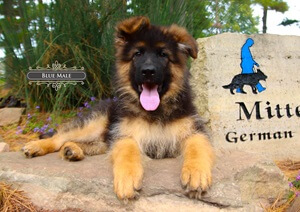
At Mittelwest German Shepherds, we breed puppies ready to adapt confidently to new environments. Our focus on temperament, health, and socialization prepares each puppy for a successful transition. Think of us as the architects of your puppy’s bright future.
Our training programs ensure puppies have foundational skills before they arrive at your home. From crate training to socialization, we set them up for success. Boarding services offer continued support in a safe, nurturing environment.
As breeders, we’re committed to ongoing guidance. We provide resources and expert advice to help you navigate your puppy’s journey. Your German Shepherd will grow into a loyal, well-mannered companion with our support. Your faithful companion is ready to thrive with the right start. Let Mittelwest help make that journey unforgettable.
Summary
Helping your German Shepherd adapt to a new environment is a rewarding journey. Preparation, socialization, and training ensure a smooth transition. These steps nurture their natural intelligence, loyalty, and confidence.
Mittelwest German Shepherds simplifies this process with well-bred, socialized puppies and ongoing support. Our dedication to responsible breeding and care ensures your puppy’s success.
